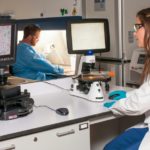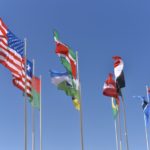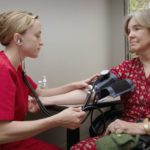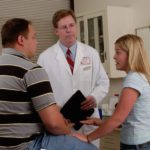
Ideas to Help If You Don’t Match
The National Residency Match Program (NRMP) is the program for medical school graduates in the United States and other countries to apply for hospital residency programs.
It is a big program, with lots of institutions and organizations involved. Among them are the United States Medical Licensing Exam (USMLE) and the Education Commission for Foreign Medical Graduates (ECFMG).
The program typically opens in the September before the residency year. Applications – test scores, letters of reference, transcripts and medical school diplomas (all translated) – can be submitted until around that November.
Once everything is submitted, hospitals begin the process of selecting applicants they are interested in. Interviews are generally offered in December or January.
While there are lots of dates to remember – rank order listing, among them – the week containing March 15 is Match Week.
This is the time that all applicants are informed of residency acceptances.
Medical school students are often informed via their school programs. International medical graduates are notified by the program as well.
Now, what to do if you do not match for the next year?
Understandably, it can be frustrating and disheartening. You have spent a lot of time and effort in the application process.
There are some ways to still get a residency position in the United States if you are interested.
SOAP
FREIDA
Canada and Australia
US Military Hospitals (Tricare.gov)
SOAP – Supplemental Offer and Acceptance Program
SOAP is a program that helps applicants who are not selected in the match process.
There are times that hospitals and programs cannot get applicants for positions. These are termed unfilled positions.
On the first day of Match Week, applicants are informed that they did not match may begin to apply for a position through SOAP.
The application must be made that week as the offers are only open until positions are filled.
For some applicants who want a specific position, this is less than ideal BUT it is a chance to start residency. The SOAP website is only open through the NRMP and ECFMG.
FREIDA and the American Medical Association (AMA)
FREIDA is the name of the program administered by the American Medical Association.
It is a database that allows registered applicants to search approximately 12,000 positions that are available for residency AND for fellowship.
The programs are fully accredited by the Accreditation Council for Graduate Medical Education (ACGME).
This can be another way to apply for programs that are not offered in the Match Program. You will need to register for the service.
Link https://freida.ama-assn.org/
Canada and Australia
If you want to work in the United States, it might seem irrelevant for you to try to work in Canada or another English-speaking country. That is a fair point.
However, if you are looking for opportunities to learn new techniques and procedures, to get a better educative experience and to enter a new field, another English-speaking country might be a good opportunity for you to take.
Canada
If you have a medical school diploma from a school listed in the World Directory of Medical Schools (WDOMS), you can apply. Your medical education can be in either English or French.
Canada has a similar organization for medical graduates to apply for verification.
The portal is physiciansapply.ca, and it is administered by the Medical Council of Canada.
This portal allows you to upload your documents – translated – to the site to be verified. The site connects to all of Canada’s provinces and territories.
You will also be required to take several exams, such as the National Assessment Collaboration (NAC) and the Medical Council of Canada Qualifying Examination (MCCQE). This is also known as the Licentiate for the Medical Council of Canada (LMCC).
Like in the United States, there is the Canadian Residency Match Service program (CaRMS).
For any residency program, you can apply through this program with all your verified information submitted and viewable to provinces and hospitals.
The program applications normally start in July. Each province has its own regulations as well.
Link https://www.carms.ca
Australia
Australia offers a pathway, called the Competent Authority Pathway, for IMGs who have qualifications from the US (USMLE) and Canada (LMCC) as well as other English-speaking countries.
For those who do not have any qualifications, you can still apply to work in Australia through the Standard Pathway or the Specialist Pathway.
Your medical education must be accredited and approved by the Australian Medical Council (AMC) and the World Directory of Medical Schools (WDOMS).
Your documents will need to be verified by the AMC, which coincidentally uses the ECFMG’s EPIC program.
For the Standard Pathway, you will need to take the AMC CAT MCQ Examination as well as the AMC Clinical Examination.
For the Specialized Pathway, you will need to have your background examined and reviewed by the relevant medical college to determine if you need further training.
Each state in Australia may also have different requirements.
Link: https://www.medicalboard.gov.au
US Military Hospitals (Tricare.gov)
The United States has military installations around the world, in various countries.
All installations have medical care facilities to treat staff and dependents. However, there are locations that do not have every medical unit available. In these cases, patients may be transferred to local area hospitals for liaison work and help with patient care.
These locations offer residency programs – about one (1) year – for medical graduates in those countries.
This is a great chance to be able to work in a US clinical setting. IMG residents will learn to work with doctors and medical teams, and get exposure to a variety of procedures.
For a list of overseas medical facilities, please check Tricare.gov
https://tricare.mil/Military-Hospitals-and-Clinics
What else to do
If you are not interested in any of the above, what else can you do?
An important point to remember is that if you do not match, you have to maintain your skills and knowledge – in other words, stay relevant in medicine.
If you are working in your home country in a hospital or clinic, it might be a good idea to switch hospitals to get a better work environment.
Another idea is to get involved in research. Research these days is crucial for any doctor. It is more so if you are planning on working in another country.
Some program directors really consider the following questions:
Have you been the first author or co-author of a published paper?
Where did you get your research from?
Are you involved in any current research?
What research would you like to do in the United States/Canada/the UK/Australia?
If you can answer these questions, then you are on the right track.
If you can, you can try to get an observership or externship in the United States. Often, these are arranged by hospitals that have reciprocating agreements with other hospitals.
You will not be able to practice medicine on a patient, but you will be able to observe rounds, treatment, surgeries, research, and everything else about being a doctor.
Above all, when Match Week comes around, if you do not find a match with a program, you have many options open to you.





